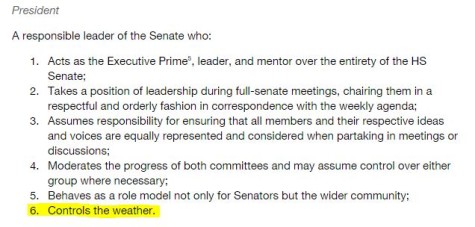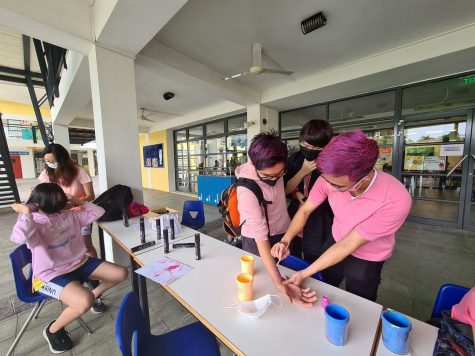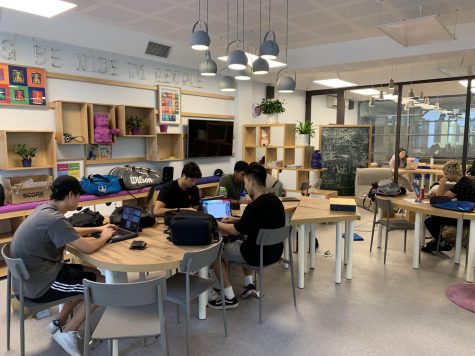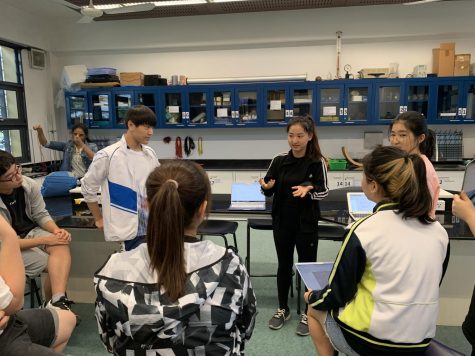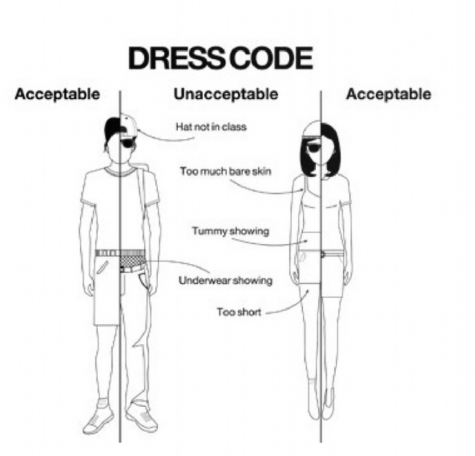Senate: A Turn for the Authoritarian
On the 10th of April, at the poorly attended and publicized Senate Press Conference, the newly adopted Constitution was finally unveiled to the public, along with drastic changes to the election process. Before The Flame could even comment on the new system, it was leaked that the top echelons for next year’s term has already been confirmed.
The 11-paged document (link) now includes a Table of Contents, a Foreword and an Introductory Statement, five new Senate Commandments (they call them Tenets), amendments to Officers’ roles, brand new guidelines for the two branches of the Senate, modified systems and procedures, instructions on how to amend the Constitution, and even a confidentiality policy.
It is clear that the “Big 3” had a lot of fun writing this critical piece of Senate foundation, unless they really expect future presidents to “control the weather”. Quite possibly the funniest sections of the new Constitution is in the Foreword and the Introductory Statements. Hamminess and self-aggrandized levels increased unchecked as the Big Three embraced their titles and poured their creative efforts in the beginning sections. So silly are the antics that any veneer of seriousness will be shed before the 5th sentence and readers will just enjoy the little chuckles intended by these elected high school students as they follow along.
Funniness aside, the new election process leaves much for discourse. Gone is the age old paradigm of 5 officers—President, Vice-President, Communications Officer, Treasurer, and Secretary. Power is now consolidated to the top three Executives: the President and the two Vices of the two branches of the Senate, Student Representative and Events. The old role of the Communications Officers—there are now two to fulfill a growing Senate—are little more than fancy names for positions that can be filled by anybody with good Photoshop skills, a mind for design, and a reasonable head for public relations. One could say that the Communications Officer of Student Rep now needs the skills that an election requires, but his or her primary job is still of only managing the morning meetings.
There are also now two Secretaries, roles deemed to require fewer qualifications such that they are to be voted in at the beginning of the next school year, thus removing the ability to secure a place in the Senate by becoming a Secretary. The Treasurer is now abolished, the responsibilities merged with that of the two secretaries.
Looking at the election list, a case could be made that elections aren’t needed for the positions of Communication Officer and Secretary and that it is more appropriate for these positions to be made by appointment. These roles are more skill-based; require little qualities of leadership or diplomacy. After all, would a speech really change the student rep’s mind about who is better at making prom posters or writing meeting notes? But who knows, Stalin started his rise to power by being elected General Secretary of the Soviet Union, a role that was more clerical than dictatorial. Maybe IB History students will get to see a real coup d’état one day
On the other hand, the role that needs to be democratically elected is decided by appointment, the role of the Vice President of Student Representative (VPSR). The President is a no brainer for elections seeing as he or she is more or less the face and leader of the entire High School. The Vice President of Events, although holds the same amount of power as the VPSR, requires the skills of an event organizer (more managing, less diplomacy). Also, Trung Tran ‘15’s appointment as the Coordinator of Events proved to be a spectacular success as Duong Nguyen ‘15 suddenly finds himself having two very capable Vice Presidents, these new procedures no doubt are trying to replicate the same outcome for future years.
The VPSR, however, is supposed to be the second leader of a group of elected grade level student rep. It is then highly ironic that those very same elected student reps can’t elect their own leader. Even with the argument that there are worries of the vote turning into a popularity contest, first, isn’t that what an election is about? Second, the ones who do the appointment (President, 2 Vice Presidents, New President and Teacher Supervisors) still compose the major voting bloc against the other seven student rep. If the student rep decision runs counter to what the Executive Bloc has to say, wouldn’t that mean the students have spoken? And third, there should be no worries about the vote as (like the first reason), the Executive Bloc probably takes popularity into consideration anyway when making the appointment, so usually the views of the Executive Bloc should align with that of the Student Reps.
In summary, the ironies are in the representative officer (VSPR) decided by the un-representative method of appointment, while the specialist roles (Secretaries and COs) are elected. Out of the two, the VSPR irony is stronger as it is a move away from how a democratic government should be.
| Branch | Position | Formal Qualifications | Assignment | Time of Assignment | Term Extension |
| Executive | President | 1 year in Senate | Elected (All) | End of year (1st) | Yes |
| VPSR | Previous year in SR | Appointed (Exec.) | End of year (2nd) | Yes | |
| VPE | Previous year in EC | Appointed (Exec.) | End of year (2nd) | Yes | |
| Comms | COSR | 1 year in Senate | Elected (SR) | End of year (3rd) | Yes |
| COE | 1 year in Senate | Elected (EC) | End of year (3rd) | Yes | |
| Secretaries | SSR | None | Elected (SR) | Start of year | No |
| SEC | None | Elected (EC) | Start of year | No | |
This brings into the question: should the Senate be a democratic instrument? The current Big 3 certainly wants to think so as the foreword mentions the Senate having “glorious democratic glory”. The joking manner doesn’t hide the fact that the Big 3 calls the Senate “democratic”, unless it is meant to be interpreted as ironic. Nevertheless, although democracy has its inherent benefits of representing the voice of the people, making sure the will of the people is enacted, etc. so does a dictatorship (or oligarchy).
A dictator (or oligarch) can bring swift execution, without need for those time-consuming decisions by popularity, and…well, actually, that’s all I can come up with. But don’t sell efficiency short, having a fast line of absolute command is crucial to an organization that only meets twice a week. In addition, according to the Hegemony Stability Theory, the international world is more stable if there is a single nation state with dominant power, a hegemon. We see this in effect with the United States and the world after the Cold War reaching unprecedented heights in wealth. Of course, international politics do not translate all that well to those of a high school student council, but general rules apply.
On an even bleaker note, some might point out that there is already an existing “higher power” in the form of teachers. There is no doubt that there exists a high influence from teachers to students. This is to be expected as students-teacher relationships are naturally unbalanced by design. Even the Senate meets with Mr. Kennedy biweekly to keep the goals and views of the Senate compatible with that of the Administration. Does this mean the Senate just has a hidden form of authoritarian government? Not necessary, the Senate is still a separate entity, working with, not under, the Administration.
But if the Senate truly wants to be as democratic as possible, the Senate should really prove that they are representing the voice of the students. However, the leaked news that the new President for the 2015-2016 school year has already been elected and his two Vices selected will come as a counter-point on how the Senate does things in practice compared to what it wants to do in theory. Not even a list of running candidates was released and the press conference didn’t even hint at such a matter. It is as if that kind of news isn’t important enough to be released. At least the speeches could have been made open to the public, even though the average high school student won’t get a vote, because it is important for students to know some measure of their new leaders. And it would have been be a good glimpse at the people that have been running the student government of UNIS High School, a government that can be more accessible to the ones it governed.
But do we really need to debate all these points? Taking a step back and looking at the big picture, the Senate will always be an amazing group of high school students. True, it sounds like an authoritarian government, but it is a benevolent authoritarian government. There is no denying the great amount of good the Senate has been able to, and will, achieve. In addition, the teachers are here because of our benefits so it’s not like they’re out to get us. So in fact, for many people, this article may seem like a moot point and they will find out who are their new leaders at the April 22 Morning Meeting. But it doesn’t really matter how they run themselves if they keep doing their job right? Well, for that, a character named Ender Wiggins once said: “The way we win matters!”
Food for thought! Lights out!

